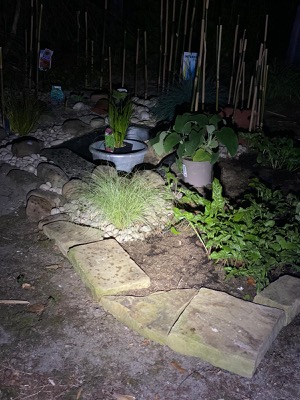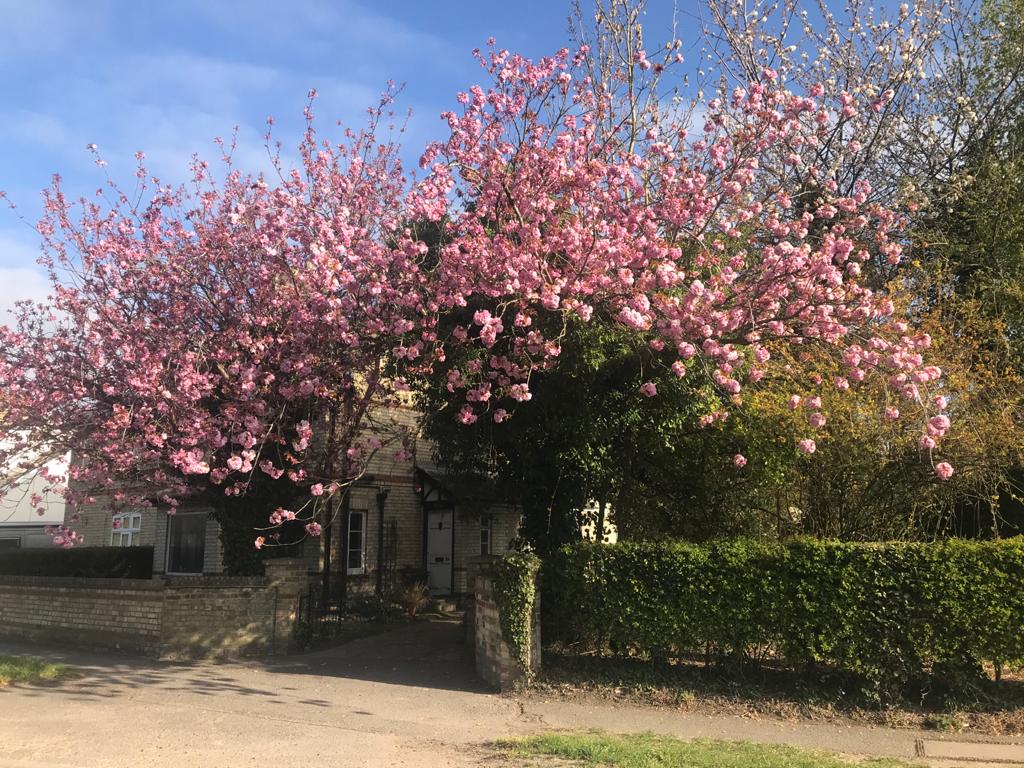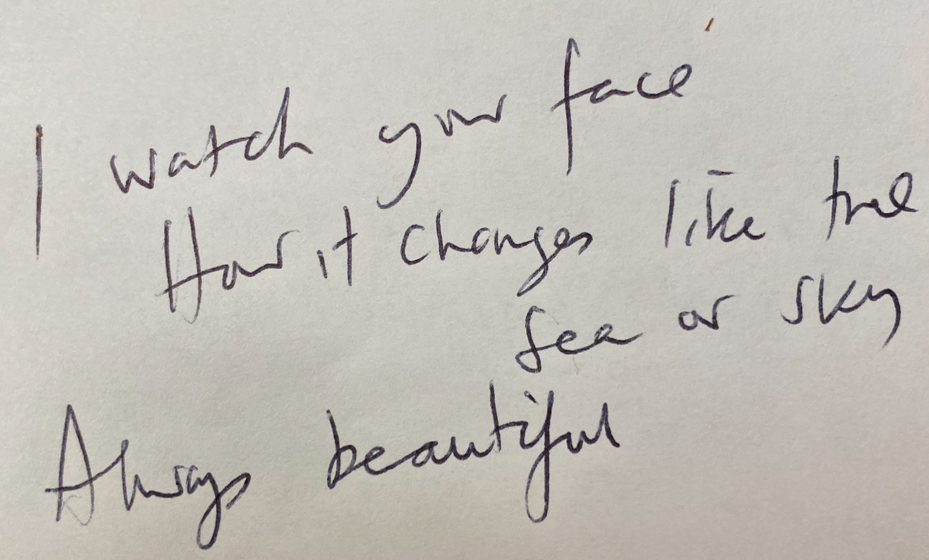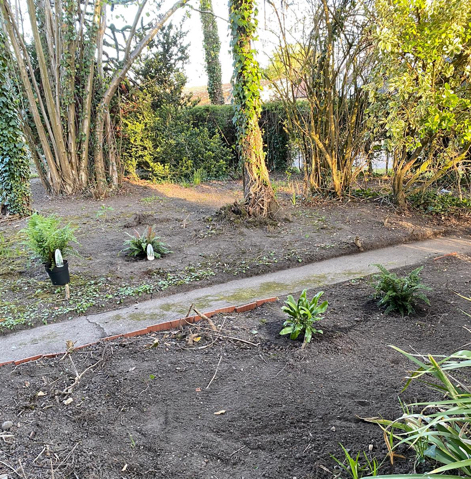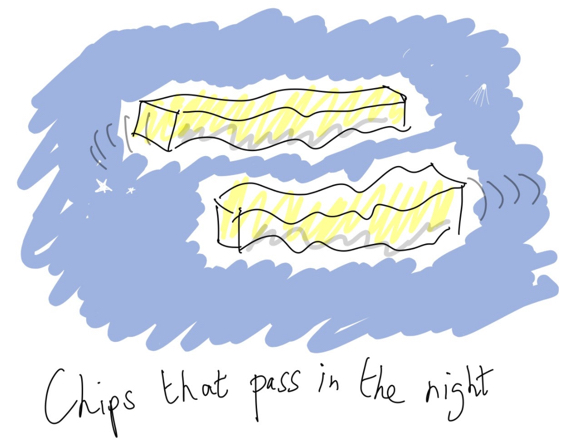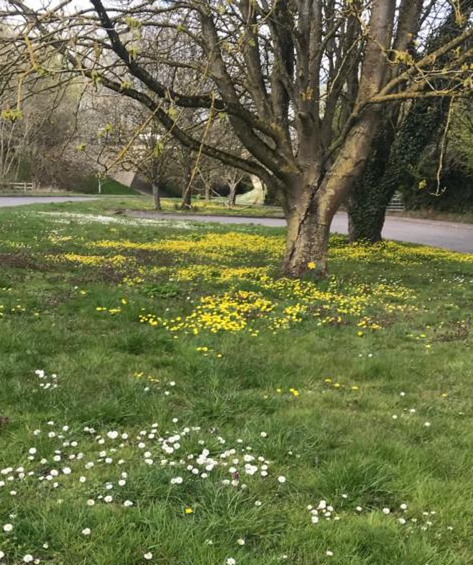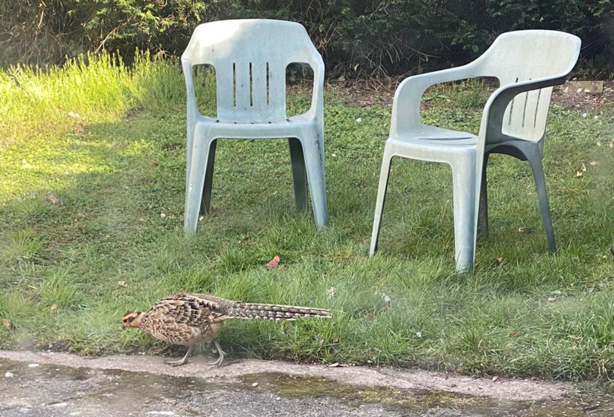A creative friend has created a magical garden-within-a-garden. We bought most of the plants, the pond liner and some of the materials, but we also scavenged a lot of cobbles and the wonderful Cornish limestone slabs you can see. We currently have a drought locally, so the pond is not filled yet.
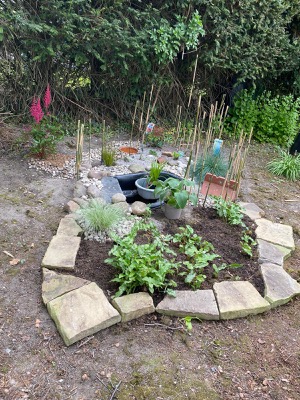
This miniature pond is designed to be soothing to the eye and spirit, but also to act a wildlife sanctuary for a variett of small animals, We had hardly finished when this young hedgesparrow came really close to us. LIke robins they follow the gardener.
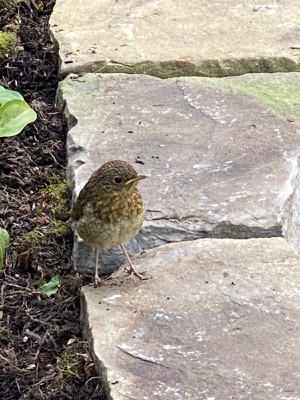
At night the area appears magical.
